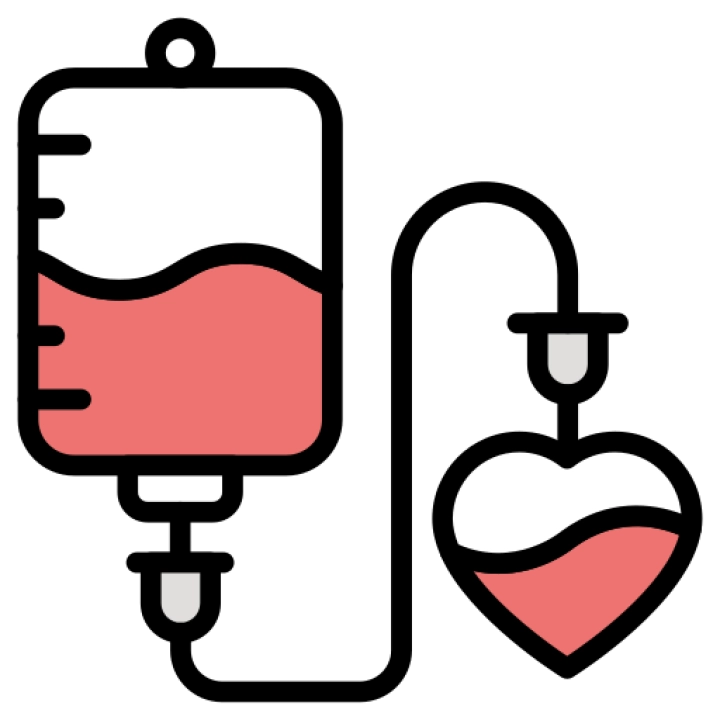College: Health Sciences
This specialization provides a comprehensive understanding of perfusion technology, focusing on cardiopulmonary bypass, extracorporeal membrane oxygenation (ECMO), and hemodynamic monitoring. The program emphasizes technical skills and medical principles to support surgical procedures and ensure patient safety. Graduates are prepared to work in hospitals, surgical centers, and medical research institutions.
Learning Objectives:
- Understand perfusion technology and its medical applications.
- Develop skills in operating cardiopulmonary bypass and ECMO systems.
- Learn hemodynamic monitoring and patient management techniques.
- Explore the role of perfusion in cardiac surgery, organ transplantation, and critical care.
- Understand patient safety and quality control in perfusion practice.
- Analyze challenges and opportunities in perfusion technology.
- Develop teamwork and problem-solving skills for medical procedures.
Main Outline:
- Introduction to Perfusion Technology - Overview of the field, its history, and applications in medical procedures and patient care.
- Cardiopulmonary Bypass - Study of cardiopulmonary bypass systems, circuit design, preparation, and management. Techniques for conducting cardiopulmonary bypass during heart surgery.
- Extracorporeal Membrane Oxygenation (ECMO) - Basics of ECMO, including indications, setup, and management. Techniques for providing respiratory and cardiac support using ECMO.
- Hemodynamic Monitoring and Patient Management - Principles of hemodynamic monitoring, including invasive and non-invasive methods. Techniques for managing hemodynamics during surgical procedures.
- Blood Conservation and Transfusion Management - Study of blood conservation techniques, including autologous transfusion and cell salvage. Techniques for managing blood transfusions and ensuring patient safety.
- Quality Control and Patient Safety in Perfusion - Fundamentals of quality control procedures and standards in perfusion practice. Techniques for ensuring patient safety and minimizing complications.
- Advanced Perfusion Techniques - Exploration of advanced techniques such as hypothermic circulatory arrest and ventricular assist devices. Techniques for applying specialized methods in complex surgical procedures.
- Perfusion in Organ Transplantation - Principles of organ preservation and perfusion during transplantation. Techniques for managing perfusion during organ procurement and transplantation.
- Emerging Trends in Perfusion Technology - Analysis of innovations such as miniaturized perfusion systems and artificial organs. Techniques for adapting to emerging trends and technologies in the field.
- Perfusion Technology Capstone Project - Real-world project applying acquired skills in perfusion practice, research, or clinical settings. Techniques for delivering a comprehensive perfusion solution.
Assessment Methods:
- Perfusion simulation exercises and practical assessments.
- Written assignments on perfusion techniques, patient safety, and data analysis.
- Group projects in perfusion research and quality monitoring.
- Participation in internships or clinical rotations with hospitals, surgical centers, or medical research institutions.
Recommended Textbooks:
- "Cardiopulmonary Bypass: Principles and Practice" by Joseph E. Flack and Mark Kurusz.
- "Extracorporeal Life Support: The Red Book of the Extracorporeal Life Support Organization" by Robert H. Bartlett et al.
- "Hemodynamic Monitoring: Evolving Technologies and Clinical Practice" by Michael R. Pinsky and Jean-Louis Vincent.
Prerequisites:
Basic knowledge of anatomy, physiology, and medical terminology is recommended. Suitable for students in medical technology, nursing, and related healthcare fields.
Duration:
Typically 2 to 4 years, including coursework, clinical training, and internships.
Certification:
Graduates may earn a degree in perfusion technology and pursue certifications like Certified Clinical Perfusionist (CCP) from the American Board of Cardiovascular Perfusion.
Target Audience:
Aspiring perfusionists, medical technology experts, and healthcare professionals seeking to specialize in perfusion technology, cardiac surgery support, and critical care management. This specialization equips students with the skills necessary to excel in perfusion technology and support advancements in medical procedures, patient care, and life support systems.


